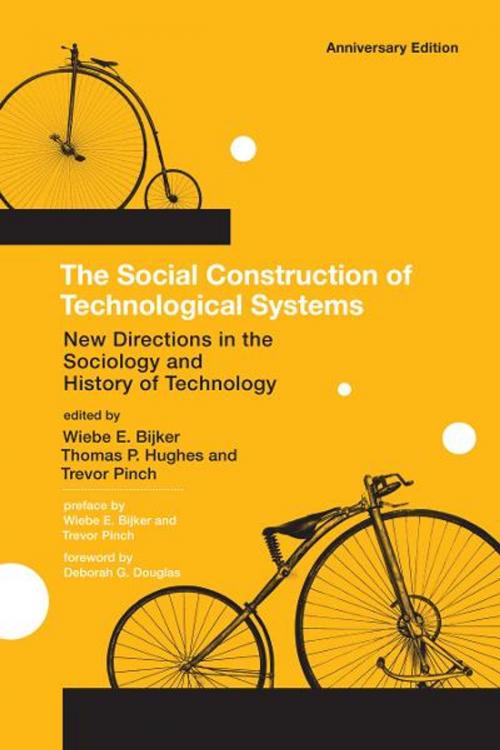The The Social Construction of Technological Systems
New Directions in the Sociology and History of Technology
Nonfiction, Science & Nature, Technology, Social Aspects, Engineering, Science| Author: | Wiebe E. Bijker, Thomas P. Hughes, Trevor Pinch, Deborah G. Douglas | ISBN: | 9780262300872 |
| Publisher: | The MIT Press | Publication: | May 18, 2012 |
| Imprint: | The MIT Press | Language: | English |
| Author: | Wiebe E. Bijker, Thomas P. Hughes, Trevor Pinch, Deborah G. Douglas |
| ISBN: | 9780262300872 |
| Publisher: | The MIT Press |
| Publication: | May 18, 2012 |
| Imprint: | The MIT Press |
| Language: | English |
This pioneering book, first published in 1987, launched the new field of social studies of technology. It introduced a method of inquiry--social construction of technology, or SCOT--that became a key part of the wider discipline of science and technology studies. The book helped the MIT Press shape its STS list and inspired the Inside Technology series. The thirteen essays in the book tell stories about such varied technologies as thirteenth-century galleys, eighteenth-century cooking stoves, and twentieth-century missile systems. Taken together, they affirm the fruitfulness of an approach to the study of technology that gives equal weight to technical, social, economic, and political questions, and they demonstrate the illuminating effects of the integration of empirics and theory. The approaches in this volume--collectively called SCOT (after the volume's title) have since broadened their scope, and twenty-five years after the publication of this book, it is difficult to think of a technology that has not been studied from a SCOT perspective and impossible to think of a technology that cannot be studied that way.
This pioneering book, first published in 1987, launched the new field of social studies of technology. It introduced a method of inquiry--social construction of technology, or SCOT--that became a key part of the wider discipline of science and technology studies. The book helped the MIT Press shape its STS list and inspired the Inside Technology series. The thirteen essays in the book tell stories about such varied technologies as thirteenth-century galleys, eighteenth-century cooking stoves, and twentieth-century missile systems. Taken together, they affirm the fruitfulness of an approach to the study of technology that gives equal weight to technical, social, economic, and political questions, and they demonstrate the illuminating effects of the integration of empirics and theory. The approaches in this volume--collectively called SCOT (after the volume's title) have since broadened their scope, and twenty-five years after the publication of this book, it is difficult to think of a technology that has not been studied from a SCOT perspective and impossible to think of a technology that cannot be studied that way.















